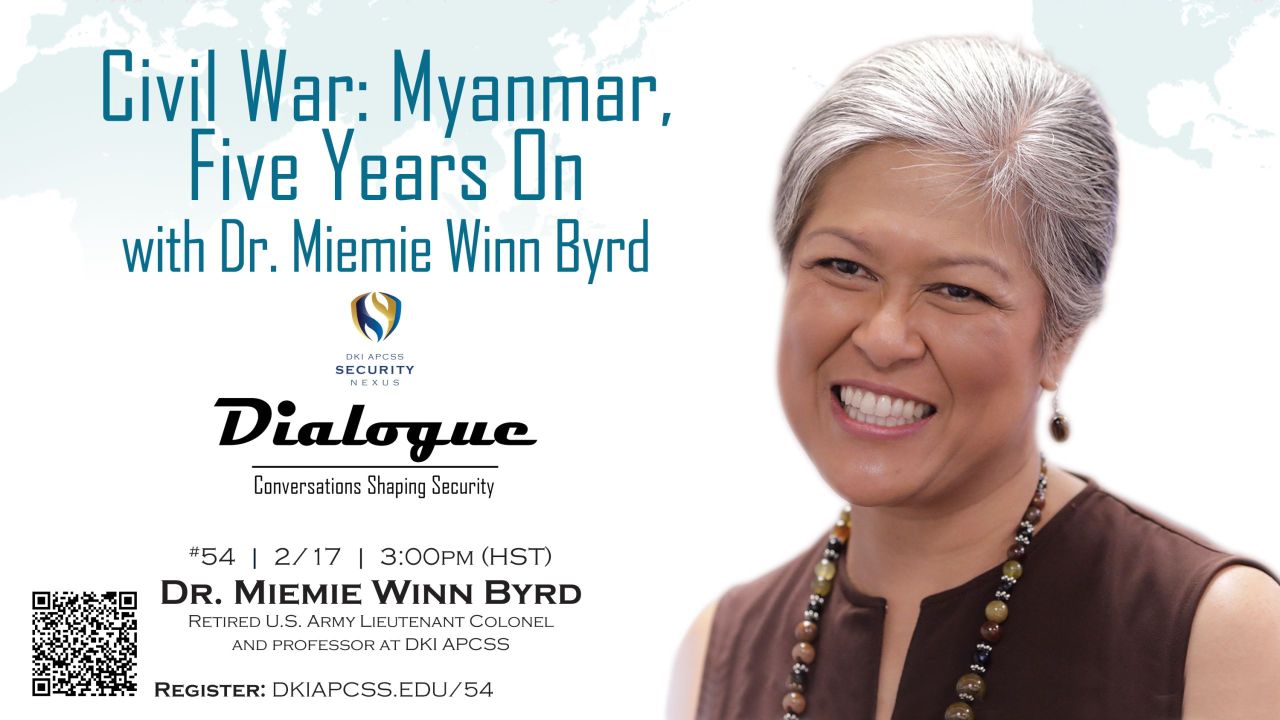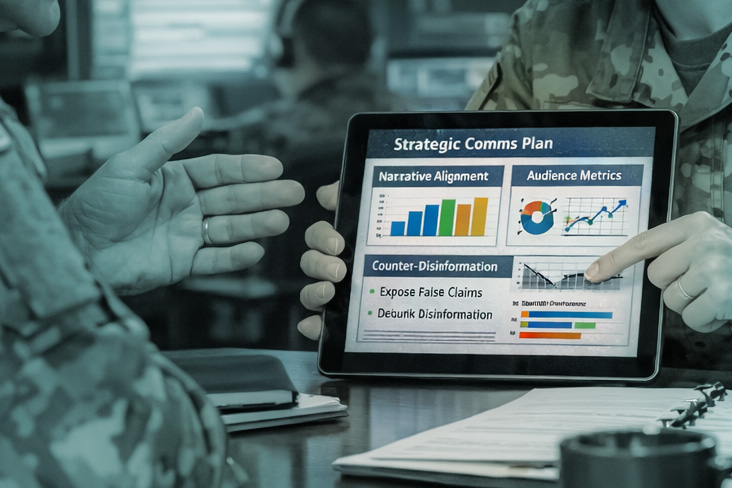By Dr. James M. Minnich
October 28, 2024
As the war in Ukraine grinds on with no clear resolution in sight, the international community faces mounting pressure to explore pathways toward ending the conflict. Ukraine’s uncertain future was the focus of Episode 30 of Dialogue, “Conflict’s End in Ukraine,” where DKI APCSS professor Dr. James Minnich discussed these dynamics with Dr. Marzena Żakowska, an assistant professor and lecturer at the Faculty of National Security at War Studies University in Warsaw, Poland. Since Russia’s full-scale invasion in February 2022, the war has devastated Ukrainian infrastructure, strained Western alliances, and transformed Eastern Europe’s security landscape. Despite significant military aid and financial support from Western allies, the conflict has settled into a stalemate, raising questions about how—and when—the war might conclude.
Ongoing Conflict and Humanitarian Strain
Recent months have seen shifts in battlefield dynamics, with both Russian and Ukrainian forces adapting tactics to compensate for heavy losses and prolonged engagement. Russia has intensified its strikes on Ukrainian infrastructure, focusing particularly on power plants and energy grids to disrupt Ukraine’s economy and strain civilian resilience as winter approaches. These actions have brought humanitarian challenges as millions of Ukrainians endure power outages and deteriorating living conditions. Meanwhile, Ukrainian forces continue to defend strategic areas but face growing challenges as their resources, personnel, and Western supplies become increasingly stretched.
Minsk Agreements: A Broken Peace Roadmap
Negotiating an end to the conflict, however, remains complicated. The Minsk Agreements of 2014 and 2015, initially aimed at creating a peace roadmap for Eastern Ukraine, have largely been disregarded, leaving the international community to question whether the framework still holds relevance. With Russia’s current territorial ambitions and Ukraine’s insistence on full sovereignty, new diplomatic approaches may be necessary to bring the parties back to the negotiating table.
Possible Pathways to Peace
Several scenarios are being examined by analysts as potential outcomes of the conflict. In an optimistic view, Ukraine could achieve a complete victory, regaining control over all occupied territories with sustained Western support. Yet, this scenario faces substantial obstacles, given the protracted nature of the conflict and the costs involved in military aid. A second scenario considers the potential division of Ukraine, wherein peace could be brokered through an internationally monitored corridor that cedes certain areas to Russian influence. However, this approach risks significant opposition from Ukraine and could provoke further instability in the region.
Alternatively, a frozen conflict could arise, with no formal peace treaty but a gradual reduction in hostilities. This outcome, however, may entrench the conflict and hinder Ukraine’s economic recovery while keeping the region in a state of perpetual tension. The most severe outlook envisions Ukraine potentially becoming a failed state if hostilities continue unchecked and Western support wanes. Such an outcome would have dire implications not only for Ukraine’s governance but for the stability of Eastern Europe as a whole.
The Role of International Mediation
With the war’s trajectory shifting in response to changing battlefield conditions and political pressures, the coming months will be crucial for assessing viable paths to peace. International actors, including NATO, the European Union, and the United Nations, may play significant roles in future negotiations, while the United States’ evolving political landscape adds another layer of unpredictability. As winter approaches, the urgency to pursue a balanced resolution that addresses both Ukraine’s sovereignty and regional stability has never been clearer. However, reaching a sustainable peace will require a concerted effort from all stakeholders, as well as a willingness to address both the immediate security concerns and the long-term stability of Eastern Europe.
Book Recommendation
For deeper insights into the complexities of Russia’s War in Ukraine, Dr. Marzena Żakowska recommends Mark Galeotti’s Putin’s Wars: From Chechnya to Ukraine (Osprey Publishing, 2022), Medea Benjamin and Nicolas J. S. Davies’s War in Ukraine: Making Sense of a Senseless Conflict ( OR Books, 2022), Samuel Ramani’s Putin’s War on Ukraine: Russia’s Campaign for Global Counter-Revolution (Hurst, 2023), and Sehii Plokhy’s The Gates of Europe: A History of Ukraine (Basic Books, 2021). These influential works offer nuanced perspectives on the historical, geopolitical, and ideological forces shaping the conflict, providing readers with a comprehensive understanding of Russia’s strategic objectives, Ukraine’s resistance, and the wider implications for global security and diplomacy.









Leave A Comment